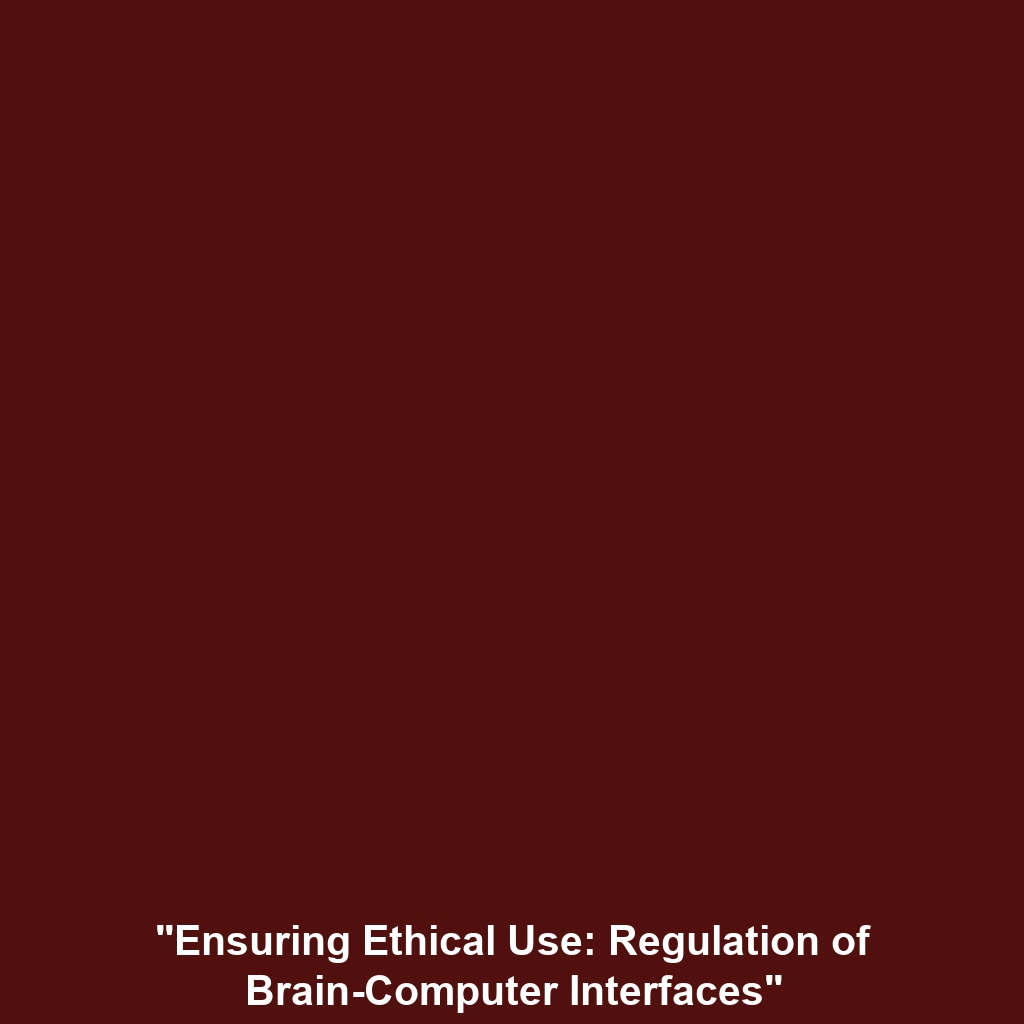Regulation of Brain-Computer Interfaces: Ensuring Ethical Use
Introduction
As the field of Brain-Computer Interfaces (BCIs) evolves rapidly, the need for comprehensive regulatory frameworks has become increasingly critical. Governmental and regulatory bodies are tasked with establishing policies that govern the ethical and secure utilization of BCIs. These interfaces, which facilitate communication between the human brain and external devices, hold tremendous potential for medical and technological advancements but also pose significant ethical and security concerns. Understanding the importance of regulation in this innovative field is essential to ensure safe and responsible applications of BCIs that benefit society.
Key Concepts
The regulation of BCIs encompasses several key concepts that are vital for the ethical integration of technology into healthcare and daily life:
1. Ethical Considerations
- Informed Consent: Ensuring participants understand the risks and implications of BCI use.
- Privacy and Data Security: Protecting individual data against unauthorized access and misuse.
2. Standards and Guidelines
Regulatory bodies must create clear standards to ensure that BCIs are developed and used following ethical principles and safety protocols. This includes compliance with existing medical device regulations.
3. Multi-Stakeholder Involvement
Collaboration among scientists, ethicists, policymakers, and the public is necessary for effective regulation that reflects societal values and concerns.
Applications and Real-World Uses
Governments and regulatory bodies play an essential role in creating a framework that supports the secure and ethical use of BCIs in various applications:
- Medical Rehabilitation: BCIs enable paralyzed individuals to control prosthetic limbs through thought.
- Neurofeedback Therapy: Regulation ensures that therapeutic applications are safe and effective for mental health treatments.
Understanding how regulation is used in BCIs helps stakeholders grasp the full potential of these technologies and their implications for society.
Current Challenges
Despite the advancements in BCI technology, several challenges hinder the establishment of effective regulations:
- Rapid Technological Development: Keeping pace with rapid changes in BCI technology poses a significant challenge.
- Ethical Dilemmas: The dual-use nature of BCIs can lead to misuse or unintended consequences.
- International Collaboration: Differences in regulatory approaches across countries complicate global oversight.
Future Research and Innovations
Looking ahead, ongoing research is poised to enhance the regulation of Brain-Computer Interfaces significantly. Innovations on the horizon include:
- Adaptive Learning Systems: Developing systems that learn from user interactions can lead to better regulatory compliance.
- Blockchain for Data Security: Utilizing blockchain technology to secure personal data collected by BCIs.
These innovations can have substantial impacts on the governance of BCI applications and their socio-ethical landscape.
Conclusion
The regulation of Brain-Computer Interfaces is crucial for fostering an environment that maximizes their benefits while minimizing ethical risks and security hazards. Establishing clear policies and guidelines can help bridge the gap between technological advancement and societal norms. Stakeholders must collaborate to create a robust regulatory framework that encourages innovation while safeguarding public interest. For further exploration on related topics, visit our pages on Ethical Considerations in Technology and Security Issues in Brain-Computer Interfaces.

